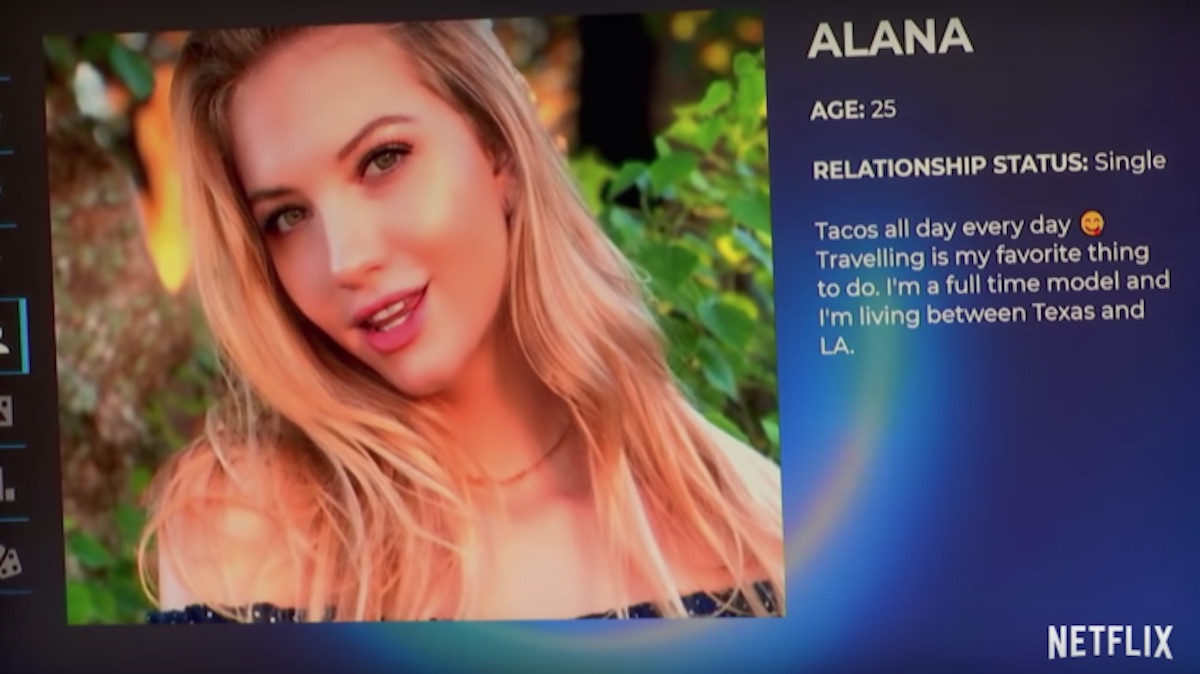The Circle Invents Science Fiction Reality TV
Welcome to sci-fi reality


Concerned moms and delighted children posited that “on the internet, you could be anyone, even a dog.” Netflix’s The Circle asks, “Yeah, but what kind of connection can I build with a dog?”
It’s a show that pushes its contestants to mistrust what everyone tells them and still build relationships. The dog may be catfishing as a cat, or the cat may be catfishing as a dog. Or a fish could be acting like a cat that hunts fish with dogs that are pretending to be cats; a real fish catfishes catfishing fishing cats scenario. It makes no sense, but at it’s best The Circle is able to build its own logic and reality out of mechanics in our everyday lives.
In The Circle, 8 contestants are separated into 8 apartments, and while they never meet face to face, they constantly communicate through “The Circle.” It’s a social media app that allows you to speak with the other contestants and build a social media profile. Then, every few days the players rank each other and the two most popular players eliminate someone. The winner (whoever places first in the final rankings) gets $100,000.
The juicy twist at the core of the circle is you can play as whoever you want to. The only information the other players get about you is the profile you make for yourself and the messages you send. You could choose to have different interests, a different body, a different gender, and a different race. Despite having no real strategic advantage, catfishing is an alluring idea for many that enter the circle as they might be able to finally gain the popularity they have been searching for.
This leads to some endlessly good TV. Straight guys flirting as their girlfriends with straight guys, a queer woman catfishing as a straight woman so guys will like her, or a nerdy guy still being nerdy despite his avatar’s six-pack. Their disguises aren’t so much based on what they want themselves to be, but are what they expect others will want to see. Inevitably, it’s impossible to predict what other people want to see, and they would all be better off being themselves. (But don’t tell them, because I want another season of this).
Sure it’s revealing when Seaburn, who is catfishing as his girlfriend Rebecca, talks about periods with the other girls and says he gets really bad cramps but only on his left side, much to the other girls’ confusion. But still his relationship with another player, Shubaum, feels open and honest because it is based in trust that neither one of them will send each other home. However, this relationship does rely on “Rebecca’s” femininity. Seaburn is able to use Rebecca to portray the feminine sides of his personality which Shubaum responds positively to, although when he interacts with the other women his femininity becomes more of a dramatized act that doesn’t resonate. The catfishing allows Seaburn to tap into parts of his real personality through breaking gender conventions when talking to Shubaum, while reestablishing gender normative behavior while talking with the women.
Good reality TV doesn’t happen when you portray “reality,” it happens when you take part of reality and make it into a game. Get people to like you or you don’t get $100,000. People come in with different strategies: be yourself, be your best self, and be nothing like yourself.
Contestants time and time again find that the best strategy is to be kind. What happens is everyone is attacking each other with kindness so that they will survive another round—like if the winner of the Hunger Games was the person that angered the least people while taking the last cookie on a plate. The Circle creates a sci-fi reality show—so not science fiction. Science reality? Sci-ri? I’ll work on the name, but it is definitely original.
Even though people enter it thinking certain identities might be more advantageous in the game, they forget that what gives those identities power is exterior contexts that have privileged them. In The Circle everyone is on a level playing ground, but the anxieties from the outside world still seep in as people don’t expect to be accepted as their true selves. Embracing one’s own identity is almost always rewarded in The Circle.
To be clear, The Circle is not some utopian space where labels and identity fall to the wayside as people come together to build community; it is a cutthroat game that forces people to build connections rather than break each other down. The Circle encourages positive social behavior through private chats and building friendships in order for people to play strategically and eliminate competition. Some people come into the game with strategies, but the strategy that is best is the one that we use to live in a liberal capitalist world. Kill them with kindness.
At the risk of sounding like an edgy YouTuber, The Circle is kind of a perfect social experiment. How can you use social capital to get real capital? Who is or isn’t catfishing isn’t as important as who can you or can’t you trust to take you further in the game. The truth is relative, the people are funny, and The Circle doesn’t disappoint. SEND MESSAGE!
(image: Netflix)
Gideon Taaffe is a newbie at pretty much everything except overthinking TV. Follow him on Twitter @Gidmanchild.
Want more stories like this? Become a subscriber and support the site!
—The Mary Sue has a strict comment policy that forbids, but is not limited to, personal insults toward anyone, hate speech, and trolling.—
Have a tip we should know? [email protected]
